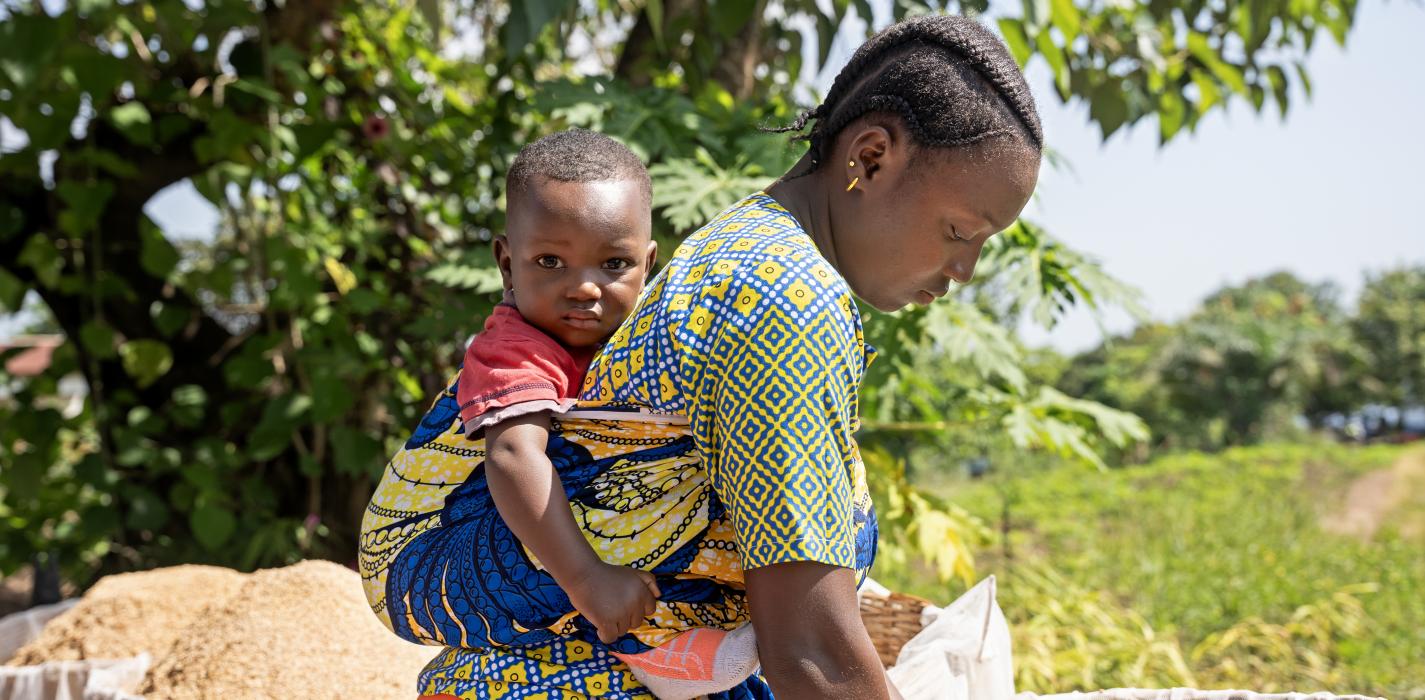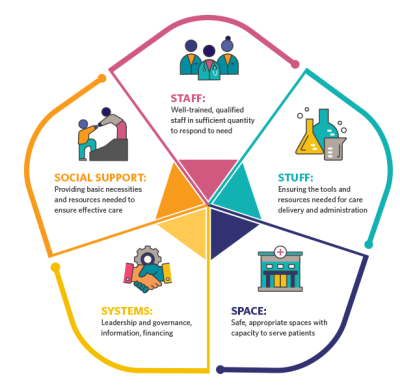Health Systems Strengthening

We believe health is a human right. In partnership with the Government of Sierra Leone, we invest in strengthening the public health system in four key areas:
Raising the Standard of Health Care Delivery
We partner with the Government of Sierra Leone to strengthen the health care delivery system at primary clinics and referral hospitals. We believe health is a human right. By filling key gaps in health care delivery systems (staff, stuff, and space), PIH strengthens public facilities comprehensively, enabling clinicians to deliver high-quality care.
Community-Based Programming
Fairly compensated, and well-trained community health workers accompany patients on their journey through sickness back to health. We extend the reach of clinical care by providing a link between community members and health facilities. By supporting disease prevention, treatment, social support, and case-finding efforts, we also amplify the voice of a community - conveying their needs and conditions back to clinicians.
Clinical and Academic Training
We build a pipeline of skilled doctors, nurses, midwives, and surgeons. Through education and mentorship, we empower trainee clinicians with the skills they need to deliver high-quality health care for future generations of Sierra Leoneans.
Government Accompaniment
We accompany the Government of Sierra Leone in everything we do. We work in partnership with the Ministry of Health to improve national health systems by generating evidence that enables insightful decision-making, and through collaborating on policy development.
PIH’s “Five S’s”

We look at health system strengthening as a mix of five fundamental ingredients: staff, stuff, space, systems, and social support. Removing any one item would result in a weaker health system overall.
1. Staff
We make it a priority to have well-trained, qualified teams in sufficient quantity to respond to needs around the globe. The roles of our staff are diverse and fall into nearly two dozen categories, such as community health, mental health, operations, nursing, program management, development, and communications.
We prioritize hiring staff from the country where they work and are proud to note this is true for 94% of PIH Sierra Leone’s staff.
2. Stuff
The list of “stuff” we need is vast and includes everything from proper and ample vaccinations and medications, such as antibiotics to treat tuberculosis, to IV fluid and oxygen supplies. PIH’s global supply chain team has a list of 2,518 different items staff select to streamline procurement orders, standardize requests from health facilities to warehouses, and align with the different protocols in country. Because of their efforts, our colleagues have the tools and resources they need for care delivery and administration.
3. Space
In order to treat patients, we need safe, appropriate spaces equipped with electricity and clean water. Sometimes these spaces already exist, but in most cases, facilities need to be renovated or built from the ground up. In collaboration with our partners, PIH creates, expands, and equips spaces so that they meet clinicians’ needs and provide a healing environment for patients.
4. Systems
This area of the 5 S’s seems invisible, but is no less important. Many systems must work in harmony to ensure consistent, quality care for patients around the world, including: a leadership and governance structure for solid decision-making, financial and accounting systems to track income and expenses, supply chain management to ensure well-stocked health facilities, medical informatics expertise for nimble record-keeping, and more.
5. Social Support
To ensure effective care, we provide basic necessities and resources, including food, housing, transportation, and financial support for patients and their families. PIH’s social support programming across all sites focuses on treating the whole patient, not just their condition.
Social support has proven an essential part of patient care and made the difference between a patient’s ability to recover from sickness and maintain good health over the long term. This support comes in many forms such as food for patients on taxing tuberculosis treatment regimens.